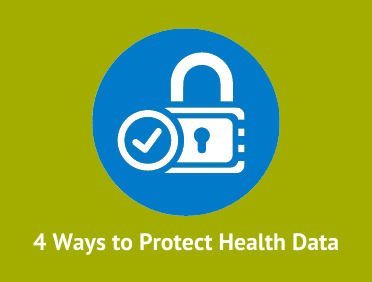
Due to worsening data privacy and security issues across the globe over the past years, the National Cybersecurity Alliance (NCA) has aimed to raise awareness for businesses and individuals to respect privacy, safeguard data and enable trust, through efforts such as Data Privacy Week.

In this spirit, Harmony Healthcare IT recommends the four following best practices for healthcare delivery organizations to protect the clinical, financial, and operational data within their care:
- Insist on HITRUST CSF® Internally and with Vendors – Utilize the most comprehensive risk management framework optimized for the healthcare industry. This demanding certification reviews 19 different domains, including data protection and privacy and provides the broadest risk management program available for healthcare. By integrating controls from several applicable frameworks and best practice standards, as well as tailored requirements for healthcare, HITRUST speaks to risk which is one of the tenant requirements of HIPAA and one of the most cited issues in audits conducted by the Office for Civil Rights (OCR). It is important to have HITRUST CSF® in your provider organization as well as with vendor partners. This certification demonstrates that the supplier adheres to the exacting security measures to protect patient data.
- Create/Revisit Your Legacy Data Management Strategy – Successful legacy data management and accessibility to historical records benefits patients and helps protect the organization from being accused of Information Blocking. Determine options for converting legacy data to new systems or migrating it to an active archive. Both options support Cures Act compliance and avoid Information Blocking.
- Reduce Your Legacy System Footprint – Many large integrated delivery networks have 30-40 or more legacy clinical, financial, and business systems running in various states of use. Older systems can be ripe for technical failure and security breaches. These systems can also be viewed as open doors and windows to security vulnerabilities that need to be closed. As healthcare continues to be the number one most breached industry, decommissioning vulnerable legacy systems is a strong defense against attacks.
- Increase Internal Education – Ensure everyone within the organization is aware of their role in maintaining data privacy and security. This includes equipping them with proper training around cybersecurity and privacy best practices as well as any regulations. Regularly audit training programs and be sure to adapt or supplement standard trainings based on what is happening in the industry.
For further information, check out these resources:
HCCA Compliance Today: Legacy data management and compliance: Prepare your business today
eBook: How to Manage Legacy Data in the Age of Information Blocking
Podcast: HealthData Talks: Information Governance
Are you focused on data protection every day of the year?
Us too.
Our team is ranked number one as the top Data Archiving, Data Extraction and Migration company according to Black Book™ Rankings, a division of Black Book™ Market Research for the past three years (2019-2021). This recognition underscores our commitment to keep patient, employee and business records accessible, usable, interoperable, secure and compliant.
Ready to talk about securing your legacy data?






